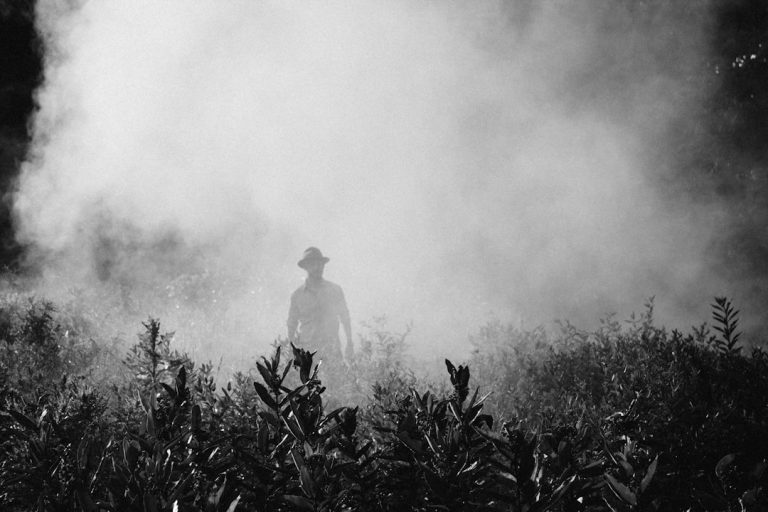
Edgar Allan Poe’s “The Fall of the House of Usher” is a seminal work of Gothic literature, published in 1839. The story explores themes of decay, madness, and supernatural elements through the perspective of an unnamed narrator visiting his friend, Roderick Usher, in a dilapidated mansion. The house itself serves as a central character, reflecting the deterioration of the Usher family lineage.
The narrative’s atmospheric setting and psychological depth contribute to its enduring impact. Poe’s vivid descriptions create a sense of foreboding from the outset, with imagery of bleak walls and stark trees surrounding the estate. As the story unfolds, the interplay between the physical structure and the mental states of its inhabitants becomes increasingly apparent.
The tale delves into themes of isolation, fear, and inescapable destiny. It examines the complex relationship between Roderick and his twin sister, Madeline, while also serving as a commentary on familial bonds and mental illness. The gradual disintegration of both the characters and their ancestral home is portrayed through Poe’s masterful use of symbolism and language.
“The Fall of the House of Usher” remains a significant work in the Gothic genre, offering readers a haunting exploration of psychological and architectural decay that continues to resonate with audiences long after its initial publication.
Key Takeaways
- “The Fall of the House of Usher” is a gothic short story written by Edgar Allan Poe, known for its haunting atmosphere and psychological themes.
- The Usher family has a dark and tragic history, marked by illness, madness, and a curse that seems to haunt them.
- The house itself is a character in the story, with its decaying, oppressive atmosphere adding to the sense of dread and impending doom.
- Roderick and Madeline Usher, the last of their line, meet a tragic end as the curse of their family finally takes its toll.
- The story is heavily influenced by gothic literature, with its themes of decay, madness, and the supernatural, and has had a lasting impact on the genre.
The History of the Usher Family
The Usher family is steeped in a rich yet tragic history that serves as a backdrop for the events of the story. The lineage is marked by a series of misfortunes and peculiarities that have contributed to its eventual decline. Roderick and Madeline Usher are the last surviving members of this once-prominent family, and their ancestral home reflects both their heritage and their impending doom.
The family’s history is shrouded in mystery, with whispers of madness and disease echoing through generations. This legacy of despair is palpable in the very walls of the mansion, which seem to absorb the sorrow and anguish of those who have lived within them. As the narrator delves deeper into the Usher family’s past, he uncovers tales of mental illness that have plagued its members for centuries.
Roderick’s heightened sensitivity and artistic temperament are indicative of this inherited affliction, while Madeline’s mysterious illness adds another layer to their tragic narrative. The isolation imposed by their family’s history exacerbates their psychological struggles, creating an environment where fear and despair thrive. The weight of their ancestry looms large over them, suggesting that their fates are inextricably linked to the sins and sorrows of those who came before them.
This exploration of familial legacy not only enriches the characters but also serves as a commentary on how history can shape individual destinies.
The Haunting Atmosphere of the House

The atmosphere within the House of Usher is one of palpable dread, meticulously crafted by Poe to evoke feelings of unease and foreboding. From the moment the narrator arrives, he is struck by the oppressive silence that envelops the estate, broken only by the occasional rustle of leaves or distant echoes. The house itself is described in haunting detail, with its “bleak walls” and “vacant eye-like windows” creating an image that is both beautiful and grotesque.
This duality reflects the inner turmoil of its inhabitants, as well as the overarching theme of decay that permeates the narrative. The very structure seems to breathe with a life of its own, mirroring Roderick’s fragile mental state and foreshadowing the tragic events that will unfold. Moreover, Poe employs vivid sensory details to immerse readers in this unsettling environment.
The oppressive atmosphere is further enhanced by descriptions of dim lighting, musty odors, and an overwhelming sense of claustrophobia that pervades every corner of the house. As Roderick’s mental health deteriorates, so too does the condition of the mansion, creating a symbiotic relationship between man and structure. The house becomes a reflection of Roderick’s psyche—dark, decaying, and filled with secrets.
This haunting atmosphere serves not only to heighten tension but also to underscore themes of isolation and despair, making it an integral part of the story’s emotional landscape.
The Tragic Fate of Roderick and Madeline Usher
| Character | Age | Health Condition | Emotional State |
|---|---|---|---|
| Roderick Usher | 30 | Fragile and deteriorating | Increasingly anxious and disturbed |
| Madeline Usher | Unknown | Seemingly dead and then revived | Appears lifeless and unresponsive |
The tragic fate that befalls Roderick and Madeline Usher is a culmination of their family’s dark history and their own psychological struggles. As Roderick grapples with his deteriorating mental state, he becomes increasingly consumed by fear and paranoia. His relationship with Madeline is fraught with complexity; they share an unbreakable bond as twins yet are also trapped in a cycle of mutual dependence and dread.
Madeline’s mysterious illness serves as a catalyst for Roderick’s descent into madness, as he becomes convinced that her death is imminent. This belief intensifies his already fragile psyche, leading him to engage in increasingly erratic behavior. The climax of their tragic narrative occurs when Madeline seemingly dies and is entombed within the family vault.
However, her return from death serves as a powerful metaphor for unresolved trauma and familial ties that cannot be severed. As she emerges from her tomb in a state of grotesque vitality, Roderick’s horror reaches its zenith. The moment encapsulates not only their individual fates but also symbolizes the inevitable collapse of their lineage.
In this harrowing conclusion, Poe masterfully intertwines themes of death, resurrection, and familial loyalty, leaving readers with a haunting sense of inevitability that underscores the story’s tragic essence.
The Influence of Gothic Literature on the Story
“The Fall of the House of Usher” is deeply rooted in Gothic literature traditions, drawing upon its characteristic elements to create an atmosphere rich in suspense and horror. Poe employs many conventions typical of Gothic narratives—such as crumbling mansions, supernatural occurrences, and themes of madness—to craft a tale that resonates with readers on multiple levels. The Usher estate itself embodies these Gothic tropes; it is not merely a setting but a character that reflects the psychological turmoil experienced by its inhabitants.
The interplay between architecture and emotion serves to heighten tension while immersing readers in a world where reality blurs with nightmare. Furthermore, Poe’s exploration of psychological horror aligns seamlessly with Gothic literature’s fascination with the human mind’s darker aspects. The story delves into themes such as isolation, fear, and existential dread—hallmarks of Gothic fiction that resonate deeply with audiences.
Roderick’s descent into madness exemplifies this exploration; his heightened sensitivity to sound and light mirrors the emotional turmoil often depicted in Gothic protagonists. By weaving these elements together, Poe not only pays homage to Gothic traditions but also elevates them through his unique narrative style, creating a work that remains influential in both literary circles and popular culture.
The Psychological Themes in The Fall of the House of Usher

At its core, “The Fall of the House of Usher” is a profound exploration of psychological themes that delve into the complexities of human emotion and mental illness. Roderick Usher’s character embodies a range of psychological struggles—fear, anxiety, and paranoia—that reflect broader societal anxieties about mental health during Poe’s time. His acute sensitivity to his surroundings serves as both a gift and a curse; while it allows him to appreciate art and music deeply, it also drives him toward madness as he becomes increasingly overwhelmed by his fears.
This duality highlights how mental illness can distort perception and lead to isolation from reality. Madeline Usher’s role further complicates these psychological themes; her mysterious illness serves as a metaphor for repression and unacknowledged trauma within familial relationships. The bond between Roderick and Madeline is fraught with tension—while they share an intense connection as twins, they are also trapped in a cycle of dependency that exacerbates their individual struggles.
Their tragic fate underscores how unresolved psychological issues can manifest in destructive ways, ultimately leading to their downfall. Through these characters’ experiences, Poe invites readers to confront uncomfortable truths about mental health and familial dynamics, making “The Fall of the House of Usher” not only a tale of horror but also a poignant commentary on human fragility.
The Legacy of The Fall of the House of Usher in Literature
The legacy of “The Fall of the House of Usher” extends far beyond its initial publication; it has left an indelible mark on literature and popular culture alike. As one of Poe’s most celebrated works, it has inspired countless adaptations across various media—from film to theater to visual art—demonstrating its enduring relevance in contemporary discourse on horror and psychological themes. Its influence can be seen in subsequent literary works that explore similar motifs—decay, madness, and familial ties—establishing it as a cornerstone in both Gothic literature and American fiction.
Moreover, “The Fall of the House of Usher” has sparked critical analysis regarding its themes and stylistic elements, prompting scholars to examine its significance within broader literary movements. Its exploration of psychological horror has paved the way for future authors to delve into complex character studies that challenge traditional notions of sanity and morality. As such, Poe’s work continues to resonate with readers today, serving as a reminder that literature has the power to illuminate our darkest fears while simultaneously offering insight into the human condition.
In this way, “The Fall of the House of Usher” remains not only a haunting tale but also a vital part of our literary heritage—a testament to Poe’s genius and his ability to capture the intricacies of life through his artful storytelling.
For those interested in exploring the depths of Gothic literature further, particularly after reading Edgar Allan Poe’s “The Fall of the House of Usher,” a related article that delves into the intricacies of literary devices used in such narratives can be immensely beneficial. Understanding the structural and stylistic elements that contribute to the eerie and suspenseful atmosphere in Gothic literature can enhance your appreciation and analysis of Poe’s work. I recommend reading an article that discusses various literary terms, which can be found here: Exploring Literary Terms. Although primarily focused on the sonnet, this article is part of a broader series that covers essential literary terms which could be applied to understanding Poe’s complex narrative structures and themes.
FAQs
What is “The Fall of the House of Usher” by Edgar Allan Poe about?
“The Fall of the House of Usher” is a short story by Edgar Allan Poe that tells the tale of a man who visits his friend, Roderick Usher, at his decaying and haunted mansion. As the story unfolds, the reader discovers the dark secrets and tragic fate of the Usher family.
When was “The Fall of the House of Usher” written?
“The Fall of the House of Usher” was written by Edgar Allan Poe in 1839 and first published in 1845.
What is the significance of the title “The Fall of the House of Usher”?
The title “The Fall of the House of Usher” refers to the literal and metaphorical decline of the Usher family and their ancestral home. It symbolizes the crumbling of the family’s physical and mental health, as well as the impending doom that hangs over the characters.
What are some common themes in “The Fall of the House of Usher”?
Some common themes in “The Fall of the House of Usher” include madness, isolation, decay, and the supernatural. The story explores the psychological and physical deterioration of the characters and their environment.
How is the setting important in “The Fall of the House of Usher”?
The setting of the decaying mansion and its surrounding landscape plays a crucial role in creating a dark and foreboding atmosphere in the story. The eerie and oppressive environment mirrors the mental state of the characters and adds to the overall sense of dread and unease.






